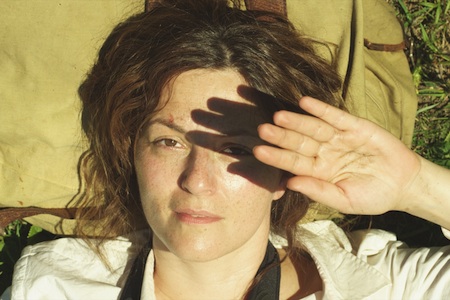The Mill Valley Film Festival, like its opposite-coast counterpart the New York Film Festival, arrives at an enviable point on the calendar. Falling after Telluride, Venice and Toronto, MVFF has access to a number of great films that are denied other regional festivals. This weights Mill Valley as an essential event (though, given New York’s public perception as the center of the cultural universe, you’re much more likely to hear about NYFF than MVFF).
The other annual Bay Area heavyweight, the San Francisco International, admittedly has its challenges with its place in the festival season, occurring in the weeks prior to Cannes. It also has its own New York foil, the Tribeca Film Festival, which, for years, has done its part to demand exclusivity for certain screenings (something that one hopes will diminish with the installation of Ted Hope at the helm of SFFS).
Fortunately, there are (seemingly) no such “pissing matches” between MVFF and NYFF. Between the opening night duo of On the Road and Silver Linings Playbook (both fresh from Toronto) to the West Coast premiere of Life of Pi (following its NYFF premiere) for closing night, a handful of sensational films will unspool over its 11 days. Not counting these three nor the recent Telluride success story Argo or many of the Cannes debuts that are finally making the rounds, here is a sampling of ten other features worth seeking out—either in Mill Valley or elsewhere thereafter.
1. The Wall
One of the greatest films of the year? Indeed, this little-seen Julian Pölsler adaptation of the Marlen Haushofer novel has gone largely unmentioned by most folks discussing Mill Valley’s ample selection of superlative works and it is unlikely to appear on many year-end ten-best lists. At its lone screenings thus far at Karlovy Vary and the Berlinale, The Wall received some modest recognition (and was even awarded the Prize of the Ecumenical Jury at the latter) but the press has unsurprisingly passed over this mystifying film. Martina Gedeck, in particular, deserves considerable praise for an extraordinary performance that has her occupying nearly every moment of screen-time. The Wall requires patience. It’s a quiet, contemplative film. But your patience will be rewarded.
2. Holy Motors
If you happen to believe that everything that can be done has already been done in cinema, you haven’t seen the latest film by Leos Carax. Even in its moments of homage to earlier works, Carax takes the viewer on a metaphorical (and, at times, literal) ride. A sequence of preposterous vignettes held together by an equally preposterous framing device, Holy Motors allows the unparalleled Denis Lavant extensive opportunities to chew the scenery (and chew off a finger or two). If such a premise sounds unbelievably tedious, Holy Motors is consistently more hilarious than anything else released this decade.
3. Tabu
Critic-turned-director Miguel Gomes‘s unconventional Tabu is obviously not for all tastes. Some folks love it. Some folks show little more than disdain for it. But if you give yourself over to the prologue and then get beyond the introductory section (in essence, a second prologue), the final two-thirds of the film is about as wonderful as anything to grace the silver screen all year. Luminous storytelling at its very best and one of a handful of impressive acquisitions this year by Adopt Films (including Ursula Meier’s Sister, Christian Petzold‘s Barbara and Marie Losier’s The Ballad of Genesis and Lady Jaye).
4. Ricky on Leacock
Though other documentary directors of the 1950s and 1960s were more regularly in the limelight, Richard Leacock was quite possibly the best filmmaker of them all. He was a versatile cinematographer, collaborating with D.A. Pennebaker on a number of films (including the infamous 1PM with Jean-Luc Godard). Leacock was also entirely responsible for Toby and the Tall Corn, a landmark among made-for-TV documentaries, as well as certain innovations that changed the shape of non-fiction filmmaking forever. Jane Weiner’s film portrait of Ricky is precisely everything you would want from such a work, with unbelievable access to Leacock dating back to the early 1970s all the way though to his unfortunate passing last year.
5. Maelstrom
Few festivals and directors have such a committed relationship as Mill Valley and Direct Action filmmaker Rob Nilsson. His latest receives a world premiere at MVFF and, if any annual occurrence encapsulates what this festival is all about, this is it. Uncompromisingly independent and the closest that we have to a continuation, in spirit, to the raw dramatic possibilities first proposed by John Cassavetes over 60 years ago in Shadows.
6. In Another Country
After directing a film roughly every two years since 1996, Hong Sang-soo has been unusually productive over the past four years. He has essentially doubled his filmography, completing six features, a short and a sequence from an omnibus film from 2008 to the present. While he was already established as one of South Korea’s greatest talents for Virgin Stripped Bare by her Bachelors and Woman is the Future of Man, this increase in productivity has not reduced the quality of his efforts whatsoever. Hong has, however, “lightened up” somewhat over his career. In Another Country’s added benefit is its star, Isabelle Huppert, in a multi-faceted performance.
7. Seven Psychopaths
I was loathe to attend a screening of this Martin McDonagh film in Toronto for one clear reason: Despite enjoying his earlier In Bruges, caught merely by chance, I had the misfortune of attending a performance of his play A Behanding in Spokane in New York a few years back. It was a chore to sit through. Two of the actors from Behanding—Christopher Walken and Sam Rockwell—are involved in Seven Psychopaths, his latest. Since there was a window of opportunity between meetings at TIFF, I gave it a chance and it did not disappoint. In fact, it is able to evoke both pathos and humor from an escalating series of absurd situations and implausible coincidences. If you can allow yourself to suspend disbelief to excessive proportions, these Psychopaths can be a bit of fun.
8. To Chris Marker, an Unsent Letter (+ La jetée)
With the passing of Christian Francois Bouche-Villeneuve (alias Chris Marker) in July at the age of 91, numerous festivals are now paying tribute to the greatest cine-essayist of all time. Most, such as Toronto and NYFF, have selected the legendary Sans soleil to screen in his honor. MVFF has gone a different route by premiering Emiko Omori’s documentary about Marker, featuring interviews with Tom Luddy and others who knew the filmmaker. The film attempts to evoke the divergent paths of her subject’s remarkable work with varying degrees of success yet, given the dearth of material about Marker, this Unsent Letter demands to be seen.
9. Yoyo
In their effort to be wide-ranging, most festivals make a point to include a revival or two. MVFF is no different and they’ve picked a great one by way of Janus Films (the folks behind the Criterion Collection). Pierre Étaix co-wrote, directed and stars in this extraordinary comedy, winner of the Grand Prix de la Jeunesse at the 1965 Cannes Film Festival. Still not convinced? It was co-written by Jean-Claude Carrière, collaborator of Luis Buñuel, Jean-Luc Godard , Jacques Deray and others.
10. Mars et Avril
Of the new films I have yet to see, this is at the top of my list interest-wise. Writer/director Martin Villeneuve’s debut feature was adapted from his own graphic novel and stars Robert Lepage, internationally renowned as a theater director but also an immensely talented actor. Villeneuve was previously an artistic director with Cirque du Soleil and, in that capacity, he worked on Lepage’s Kà (among other productions). While this is hardly enough information to get much of a gauge on this phantasmagorical film, I am extraordinarily disappointed that both MVFF screenings will occur while I am away at the 50th anniversary of the NYFF. Not fair!






